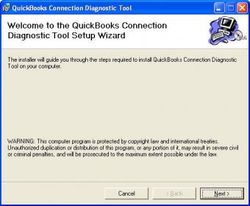I get this question often. From this question, my sense is that people are looking for 3 easy metrics to evaluate every Product Manager in an Organization. (At the outset let’s agree on the definition of metric as a system or standard of measurement.)
The answer to performance evaluation for Product Managers is complex and requires a very thoughtful approach. Let us explore Whys? Product Managers do not write code and development — code that is understandable only by trained developers but they actively participate. Product Managers do not drive sales programs (though sales are impacted by Products Journey) so the highs of sales might not be credited to them. Then, since the lingua franca of a Product Manager is standard non-technical (as in program code) English — everyone can easily understand what they are doing, have an opinion about it, and do a critique — quite like the range of responses to a well-written article in English by a good Journalist.
Since a Product Manager’s job is to bridge the Marketing, Technical, Strategic, Tactical, Design Matrix, UI/UX, Operational, Support and Sales dimensions of a company to thought, plan, build, launch, onboarding and drive Products — their performance depends much on:
1) State of the Product (MVP, first Launch, or a Mature Product) aka Product Life Cycle Stage.
2) State of the Company (Early stage Small Startup with very tight funds, Profitable but Privately held and focusing on growth, Listed on Financial Markets)
3) State of the teams (especially initial development) working on the Product (newly built team versus team working together for over a year)
For example, if we compare two Product Managers in the same company on standard financial (revenue, profitability) and growth (new customers acquired – acquisition, churn) metrics but on two different products we could make a terrible mistake in performance evaluation. In this example, if the first one is building a product from scratch and the second one is working on a product being backed by heavy marketing investment — on most financial, budget, and growth metrics, at the first product manager will likely look like an under-performer.
3 levels of Performance Metrics
Broadly there are 3 levels of Major Performance Metrics we need to evaluate the performance of a Product Manager for 3 Competencies/Features:
- Operational Competence
- Management Competence
- Behavioral Competence
All these three need to be formulated by a company based on their goals, values, and stage of evolution and agreed upon with the Product Managers upfront. I will not go into very specific details but create a broad framework in this post as per my personal experience.
Behavioral and Management Competences have a lot of common KPIs for diverse Product Managers. Operational Metrics are not very certain but will depend on the specific roles of the Product Manager. However, lean startups ups have a single product manager who works as a product owner, tech product manager, marketing product manager, and financial product manager.
Operational Competencies
Let me explain this concept with an example. A Product Manager looking after the SAAS Product in a Social Media Aggregator company like tagembed should be evaluated on different operational metrics ( Support Calls, Product Demos, Third Party APIs Integration, Etc.) – than one who is focusing on the Feed Creation Flow where conversion from Visitor to Checkout Flow to Purchase is critical.
Giving a lower performance appraisal to a backend Product manager because the overall shopping conversion of the e-commerce company is not improving shows improper judgment.
Unless there is clear data-driven evidence that customers do not do repeat purchases or do not spread good lifetime value because after checkout delivery is pathetic and hence conversion is impacted — blaming the backend Product Manager will not help anyone.
Management Competencies
These metrics are related to the Analytical and Communication capabilities of the Product Manager and are evaluated based on documents created, the process of communication with stakeholders…:
Deriving consumer and competitive insights
Vision/strategy building, communication, and document
Financial/Budget Planning
Behavioral Competencies
Behavioral competencies cover the critical Leadership, Ownership, and human dimensions of the Product manager. The mentioned points are key behaviors to evaluate on evidence as seen by managers and stakeholders.
These include things like thought leadership, Innovation, people leadership, motivation & teamwork, handling reverses and adverse events, communication (listening, writing, speaking), etc.
Different Levels of Product Managers
A final point I would like to mention is that even amongst Product Managers the scope of jobs varies. The heads of Product Management need to be evaluated with rightly formulated metrics and calculations as compared to individual contributors.
So each and every company has to take stock of the different levels of different Product Managers in the company and do a Map from Competence to Metric on basis of KPIs.
Responsive Product Management
The performance evaluation framework also needs to take into account the Tactical detours and asks from businesses. Business nowadays, especially for SAAS startups requires a lot of responsiveness. The priorities of initial product development might not be the same tomorrow. It is like climbing a mountain and once at the pick view a higher peak and a completely different view. It is a never-ending process in the product life cycle. But always need to climb for the current view considering the current peak.
Responsive Product Managers should be rewarded better rather than penalized if some pre-planned targets or goals are not met if they adjusted their focus and take actions to handle some tactical opportunities, reputation management, and priorities for the good of the company.
This is a delicate and major failure point that several companies do not handle or ignore particularly very well.
Some Product Managers become order-takers majorly if they find failure to accept stakeholder demands is penalized.
Others who refuse to buckle to tactical noise keeping focus on longer-term priorities and results — get heckled unduly by various stakeholders in the interim period.
Product Managers need to have ownership to perform better.
In your experience, if you have some good frameworks or KPIs for evaluating Product Managers, please feel free to share them with us.









